YC-backed Relate defies conventional wisdom for deeper integration
In less than a year since its official launch, Relate’s MRR and ARR have nearly doubled, as has its ACV
By Aug 27, 2024 (Gmt+09:00)
Samsung steps up AR race with advanced microdisplay for smart glasses


When in S. Korea, it’s a ritual: Foreigners make stops at CU, GS25, 7-Eleven


Maybe Happy Ending: A robot love story that rewrote Broadway playbook


NPS yet to schedule external manager selection; PE firms’ fundraising woes deepen


Seoul-backed K-beauty brands set to make global mark


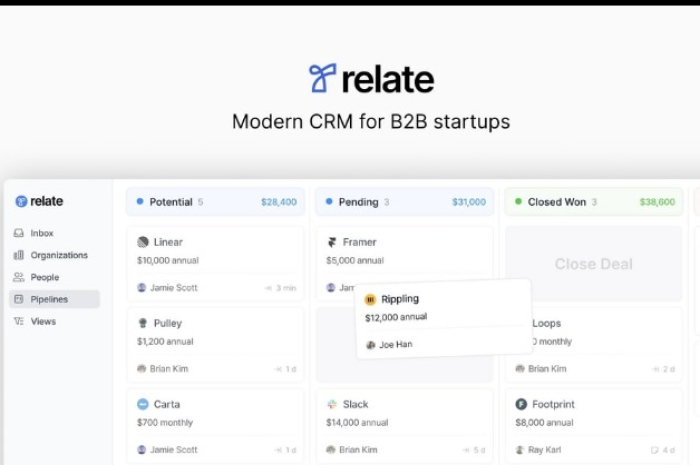
It may look like David versus Goliath, but Y Combinator-backed Relate has found a sweet spot where it can beat Salesforce in the sales customer relationship management (CRM) market without taking on the global CRM giant across all service lines.
“Our software offers services optimized for best practices,” Jung Sangyong, co-founder and chief executive officer of Pixelic Inc., said in an interview with The Korea Economic Daily last week.
“Our product is easier to use than Salesforce's and offers streamlined features. About 80% of companies just need a leaner but more efficient (CRM) service like ours to do the job.”
Pixelic is a South Korea-based startup that operates a sales CRM program called Relate.
Relate lets companies bring their entire team together to collaborate on sales with a straightforward, collaborative sales tool backed by consumer data through a simple operation, according to Pixelic.
The software-as-a-service (SaaS) product was officially launched in November last year after a year of closed beta service, the company said. The official version is now used by about 80 clients.
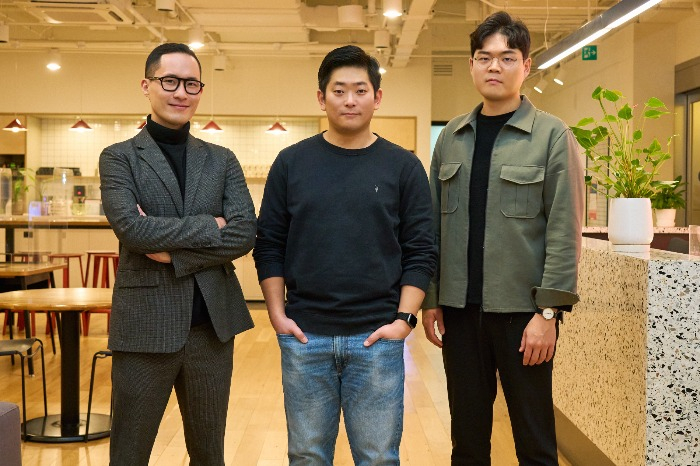
Despite its short history, it has successfully found a niche serving business-to-business software startups in the sales CRM market dominated by global titans such as Salesforce and Hubspot.
Relate’s monthly recurring revenue (MRR) and annual recurring revenue (ARR) nearly doubled this month from the same month last year, according to Pixelic.
Its annual contract value (ACV), the average annual revenue generated from each customer contract excluding fees, also doubled over the same period, while its SaaS lifetime value (LTV), a metric for the total money ever spent by a customer on a SaaS product, nearly quadrupled.
After a decent start, the Korean CRM underdog is eyeing a faster growth trajectory with relentless product upgrades, catering to its clients' demands and their growth.
“I want to see our revenue grow at a faster pace,” said Jung. “Since the official launch, we have constantly upgraded Relate for further growth and are now preparing to offer additional services.”
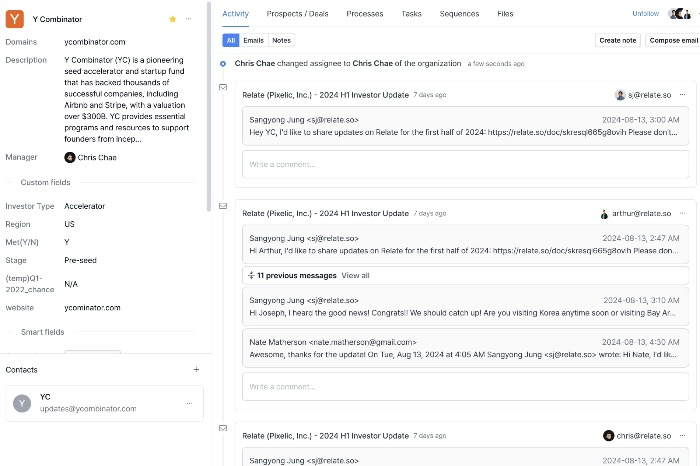
NEXT STEP, A COMPOUND STARTUP
For rapid growth, the Korean startup has departed from conventional startup wisdom, which says that a startup should build software with a narrow pick-and-stick approach to address a single problem.
Pixelic has instead embraced a new model, coined as a compound startup by Rippling co-founder and CEO Parker Conrad, said Jung.
A compound startup addresses a range of point solution systems simultaneously to build a broad portfolio of interoperable products, according to Parker. Based on the new model, Rippling unites HR, IT and finance within a single workforce platform.
Pixelic has been also working on building multiple products in parallel within Relate that are deeply integrated and seamlessly interoperable.
“Currently we link software made by other companies to our system, but it is hard to expect full integration among them,” said Jung. “We want to make Relate an all-in-one solution that can address multiple issues so our clients don’t have to shop for other software.”
As part of its efforts to expand Relate’s services, the Korean startup plans to launch an e-mail campaign feature by the end of this month, the CEO said.
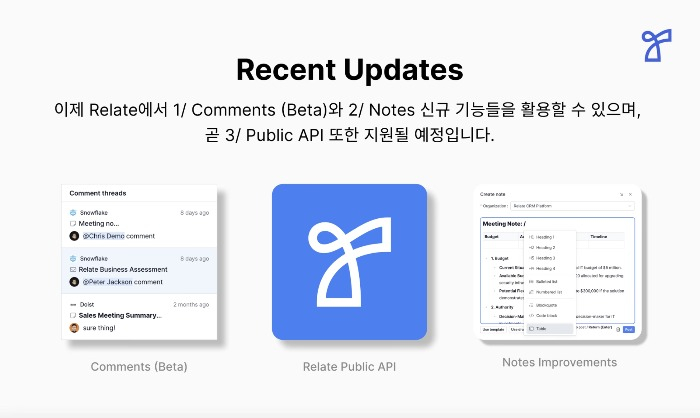
The Korean startup has also developed other services, including an online form creator and an automated email sequence, which automatically sends a series of emails to specific segments of clients’ email lists.
It is building other services that can cover the expanded end-to-end sales CRM processes, Jung said.
“If we can offer our customers an easy-to-use but end-to-end solution built on a compound startup approach, our product would have the upper hand in competition against existing rivals,” said Jung.
“There are needs for such a service. We have met customers who have addressed issues with the Salesforce program but have not met many who were satisfied with it because it is too complicated and too slow to use.”
PRODUCT-LED GROWTH
Relate is a B2B service but Pixelic is also attempting to optimize it for individual users to pursue Relate’s product-led growth (PLG) like Notion and Dropbox.
PLG-driven companies let customers experience their products for free to make them join a paid plan later after they experience meaningful outcomes while using the product.
“If we make it easy and valuable for general individual users to use Relate, those users could become our future B2B clients. Relate could be their first choice CRM product when they join sales CRM projects at work as did Notion,” said Jung.
YC ALUMNI
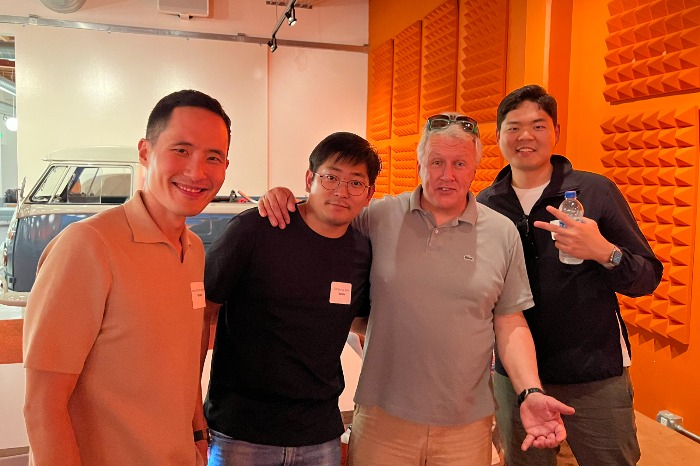
Relate is the fifth product since Pixelic was founded in 2019.
Relate is the offspring of the startup's first four projects, which were pivoted. But they didn't disappear in vain, Jung said.
The company built Relate from lessons learned from its previous four products and based on customer feedback.
With more strong features, the fifth product Relate finally gained recognition from Y Combinator, which Pixelic had chased with the old projects but failed to get its backing.
It joined the San Francisco-based startup incubator’s three-month mentoring program with Relate in 2022.
The three co-founders of Pixelic, including Jung, Arthur Kim and Christopher Chae, will head to the US in September to discuss the next seed funding round with investors there. They then plan to meet investors in Korea in October.
It has raised 3.6 billion won in total from investors, such as Base Investment, Translink Investment and Von Angels Venture Partners.
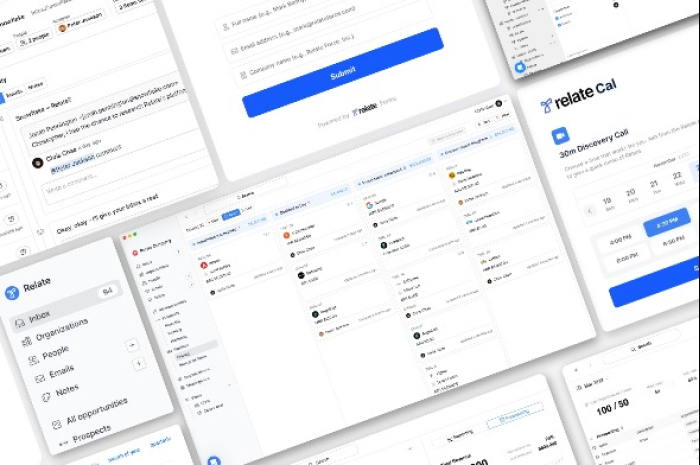
GOING GLOBAL FOR FURTHER GROWTH
Its main clients are based in Korea where the sales CRM market was in its fledgling stages when Relate was first on offer.
But Pixelic is eyeing a bigger market outside its home country for greater success.
The company has been marketing Relate in the US through its YC network, said Jung. But its main path to marketing in both Korea and the US is building a content community, where people with common interests come together to create, share and consume content.
“Our blog content is a strong marketing tool, both in Korea and the US,” said Jung. “We control a bigger share of the Korean market than the US but we are seeking to expand our US market share for further growth,” said Jung.
Relate’s Korean customers include Kakao Healthcare, camera app operator Snow, freelancer market platform Kmong and more Korean startups.
Overseas startups Footprint, Fabra and Mendable also use Relate.
Earlier this year, Pixelic was picked as one of 20 Korean startups to take part in Asan Voyager, a program designed to assist Korean startups entering the US by providing business acceleration, coaching, community learning and long-term residency support.
Write to Sookyung Seo at skseo@hankyung.com
Jennifer Nicholson-Breen edited this article.
-
 Korean startupsEnormous market ahead for Hopae, S.Korean DID pioneer
Korean startupsEnormous market ahead for Hopae, S.Korean DID pioneerAug 22, 2024 (Gmt+09:00)
5 Min read -
 Korean startupsMLOps startup Vessl AI eyes 50% sales from US in 2025
Korean startupsMLOps startup Vessl AI eyes 50% sales from US in 2025Aug 05, 2024 (Gmt+09:00)
5 Min read -
 Korean startupsColosseum poised for next leap with global expansion drive
Korean startupsColosseum poised for next leap with global expansion driveJul 29, 2024 (Gmt+09:00)
6 Min read -

-
 Korean startupsPhyxUp closes in on pre-seed round with US advance
Korean startupsPhyxUp closes in on pre-seed round with US advanceJul 03, 2024 (Gmt+09:00)
4 Min read -
 Korean startupsDentlink, virtual lab for dentists around the world
Korean startupsDentlink, virtual lab for dentists around the worldJun 20, 2024 (Gmt+09:00)
5 Min read -



